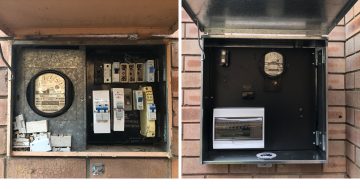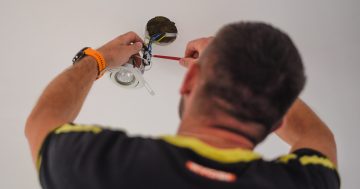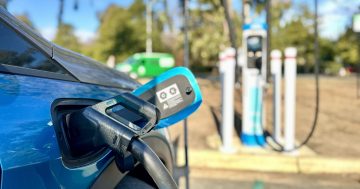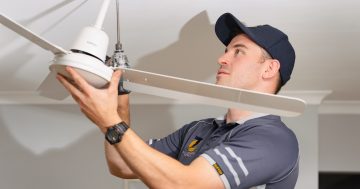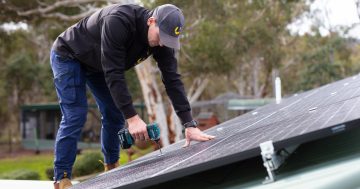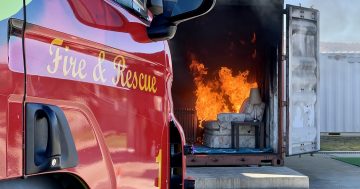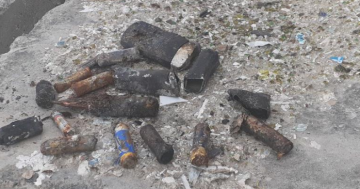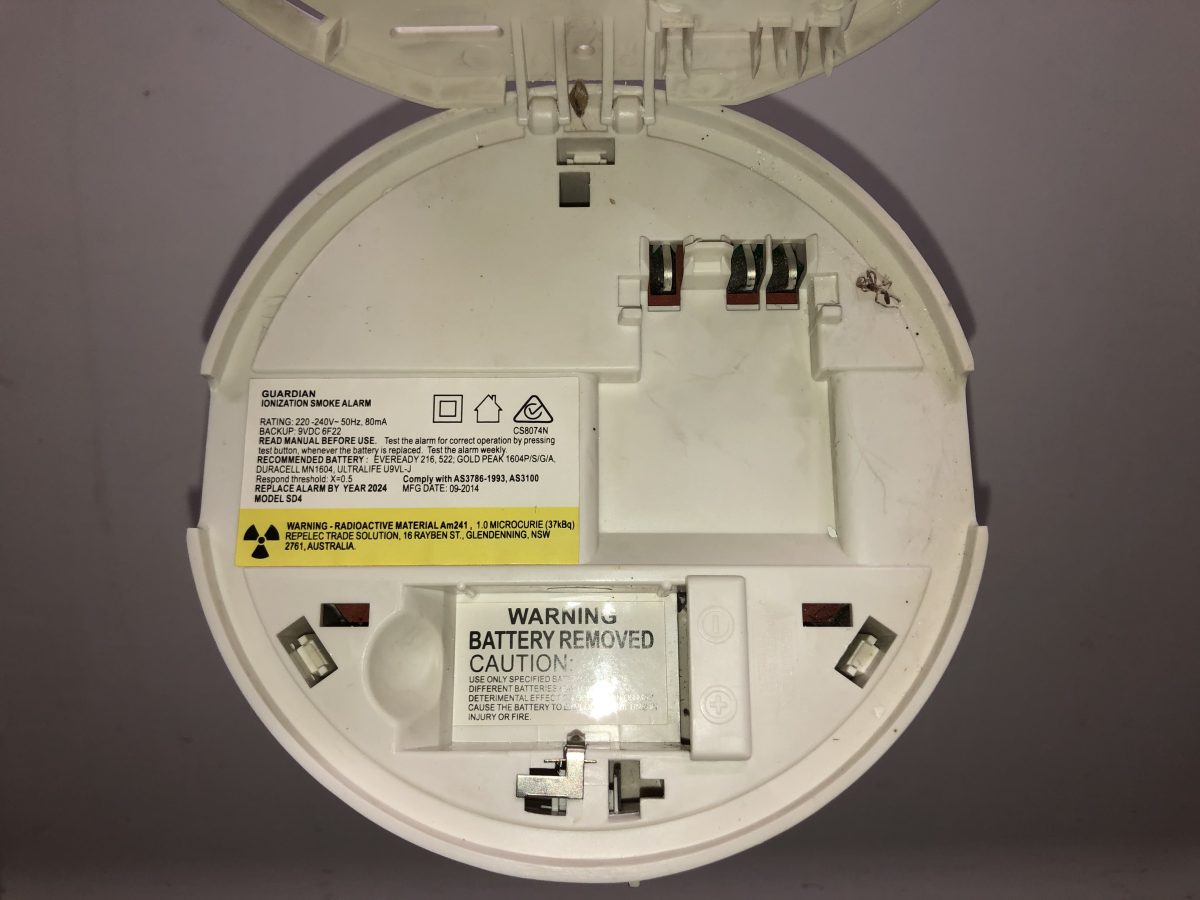
Unsure how old your smoke alarm is? Open it up to view the expiry date. You should also see a Standards Australia or ActivFire registration. Photo: Tim Middleton.
Did you know 40 per cent of house fires are caused by common electrical faults? An early warning can double your chances of escaping a house fire safely … but only working smoke alarms save lives.
Newer hardwired alarms are a far cry from the older models that go off every time you use the toaster and need their batteries replaced every year. Hardwired smoke alarms are connected to mains power and can be interlinked with others in the home so that if one alarm sounds, they all do.
By law, all ACT homes built or renovated from 1997 onward must have at least one mains-powered alarm, and interconnection is recommended by ACT Fire and Rescue.
There are two main types of smoke alarm systems – ionisation and photoelectric. Ionisation systems contain a small amount of radioactive material, which reacts to smoke emitted by a fast-flaming fire and sets off the alarm.
The problem is that most house fires start slowly and produce more smoke than flame for some time. This is why most house fire deaths are caused by smoke inhalation, not the flame itself.
ACT Fire and Rescue recommends photoelectric smoke alarms for this reason. When the light beam inside the alarm is scattered by smoke particles, some of the light hits a photocell, which usually triggers the alarm much faster.
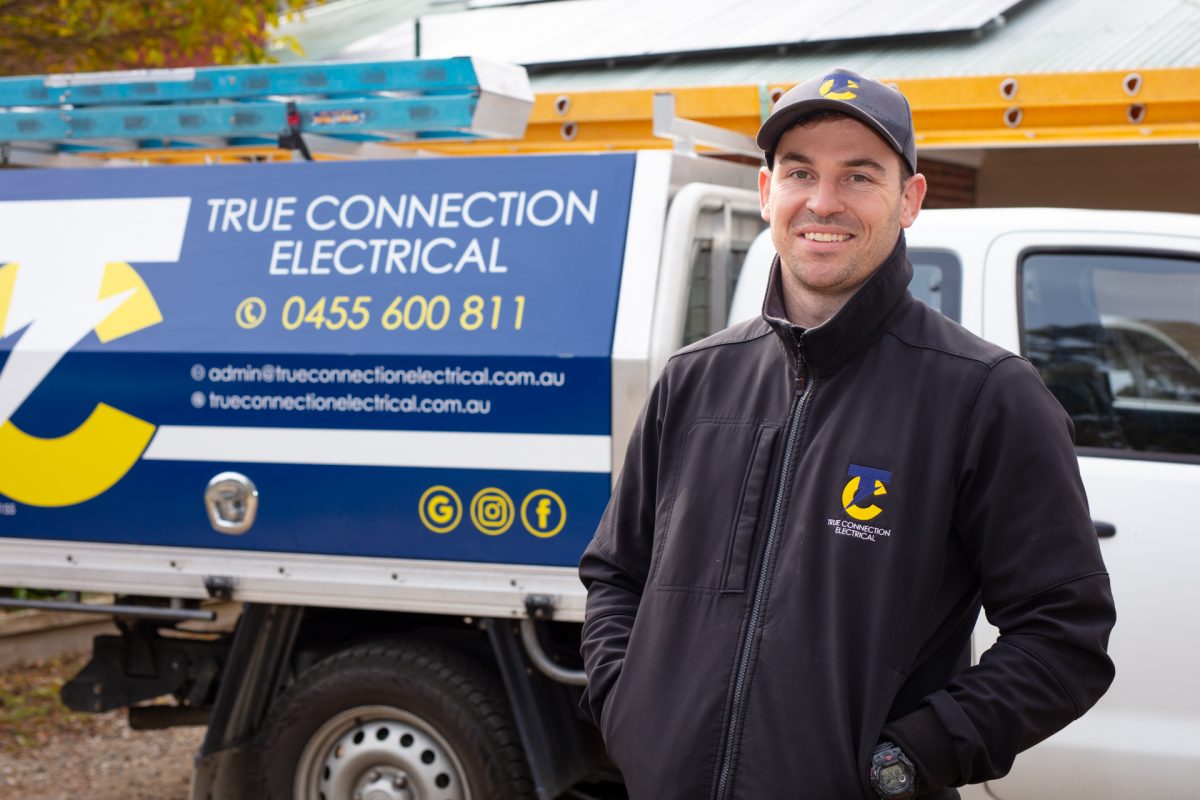
Tim says many Canberrans aren’t aware that new, safer, more convenient smoke alarms exist. Photo: Thomas Lucraft.
Tim Middleton has been a sparky in Canberra for more than a decade. He’s also the owner of True Connection Electrical, so he has seen a fair few smoke alarms in his day.
“Hardwired systems are a far better option than smoke alarms powered only by a battery,” Tim says.
“Hardwired alarms have a battery backup, so you still get that early warning if a fire starts while your power is off. New lithium-powered batteries last for a decade, rather than the yearly lifespan of lead and alkaline batteries, but it’s still important to test them once a month.”
In addition to a monthly test, smoke alarms should be dusted twice a year to keep them free of particles that could trigger a false alarm or prevent smoke from reaching sensors in a real emergency.
“We all know smoke alarms save lives, but they can only do their job if they’re working properly,” Tim says.
“It’s crucial that your alarms are in the right spot, properly powered and in working condition. Make sure you get a licensed technician to come and inspect any alarm that keeps going off on its own, doesn’t test properly or is physically damaged in any way.”
As a general rule, you should have a smoke alarm in every bedroom and living area, and in hallways that lead to them. It’s essential to have alarms installed on every level of your home.
Tim says newer models may be more self-sufficient, but no matter what type of smoke alarm you have in your home, it’s absolutely crucial that you carry out the maintenance it needs.
“It’s a small job that you don’t have to do very often, but if it’s in the too-hard basket, please call an electrician to carry out routine maintenance for you,” he says.
“At the very least, it’ll give you peace of mind. At most, it could mean an early warning that saves the lives of you and your family. It’s that simple.”
Only working smoke alarms save lives. To book a smoke alarm installation or inspection, get in touch with True Connection Electrical.












